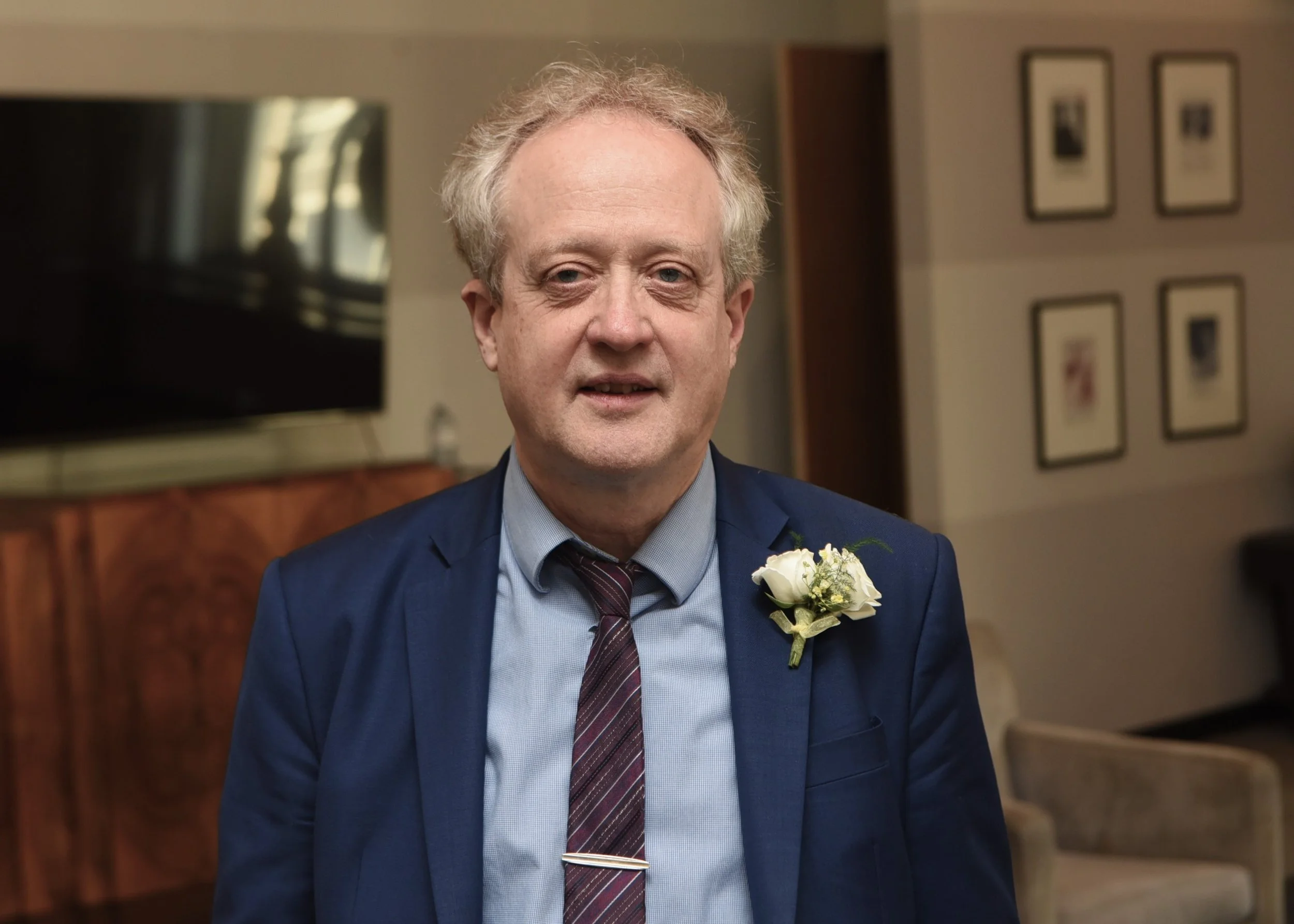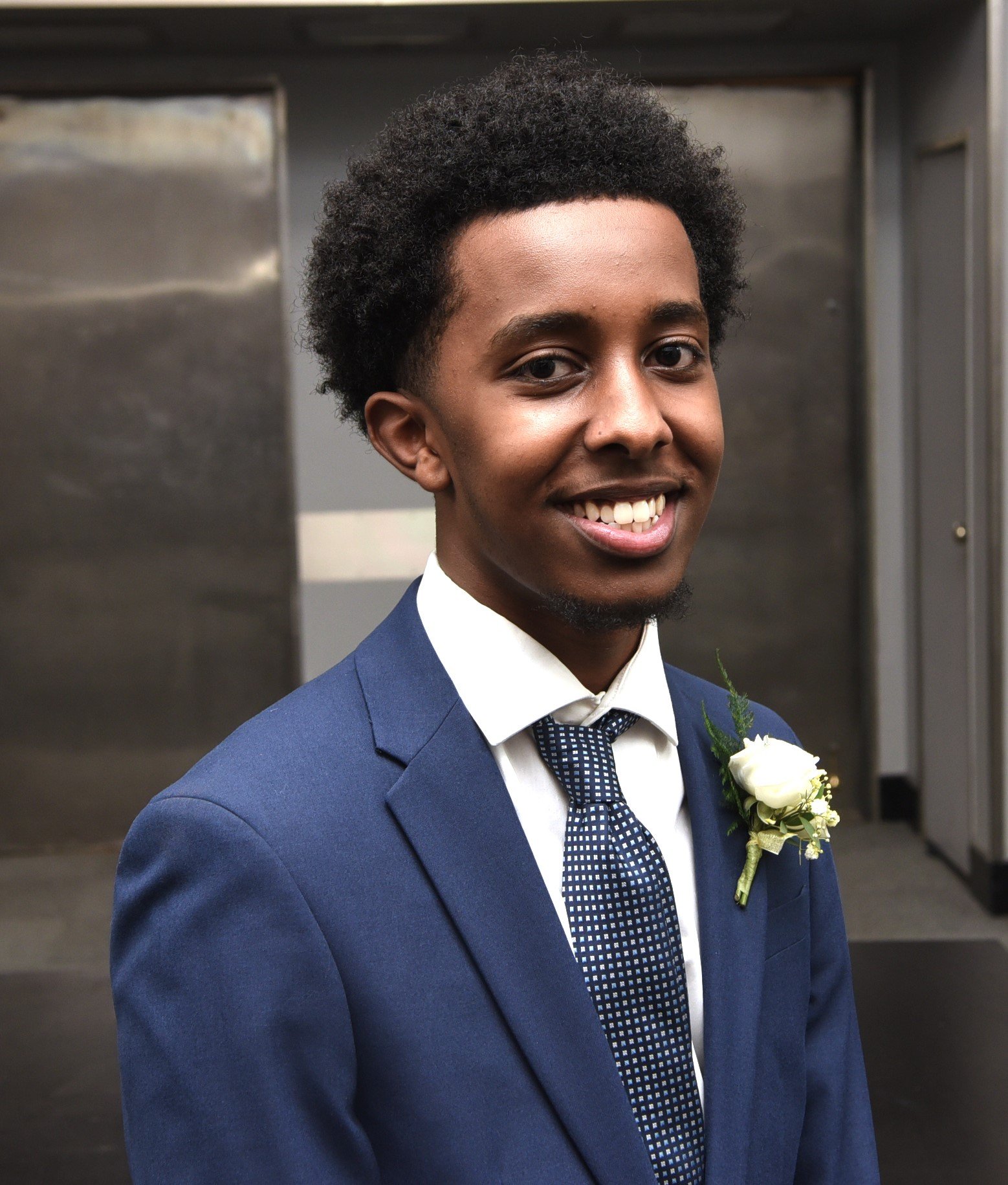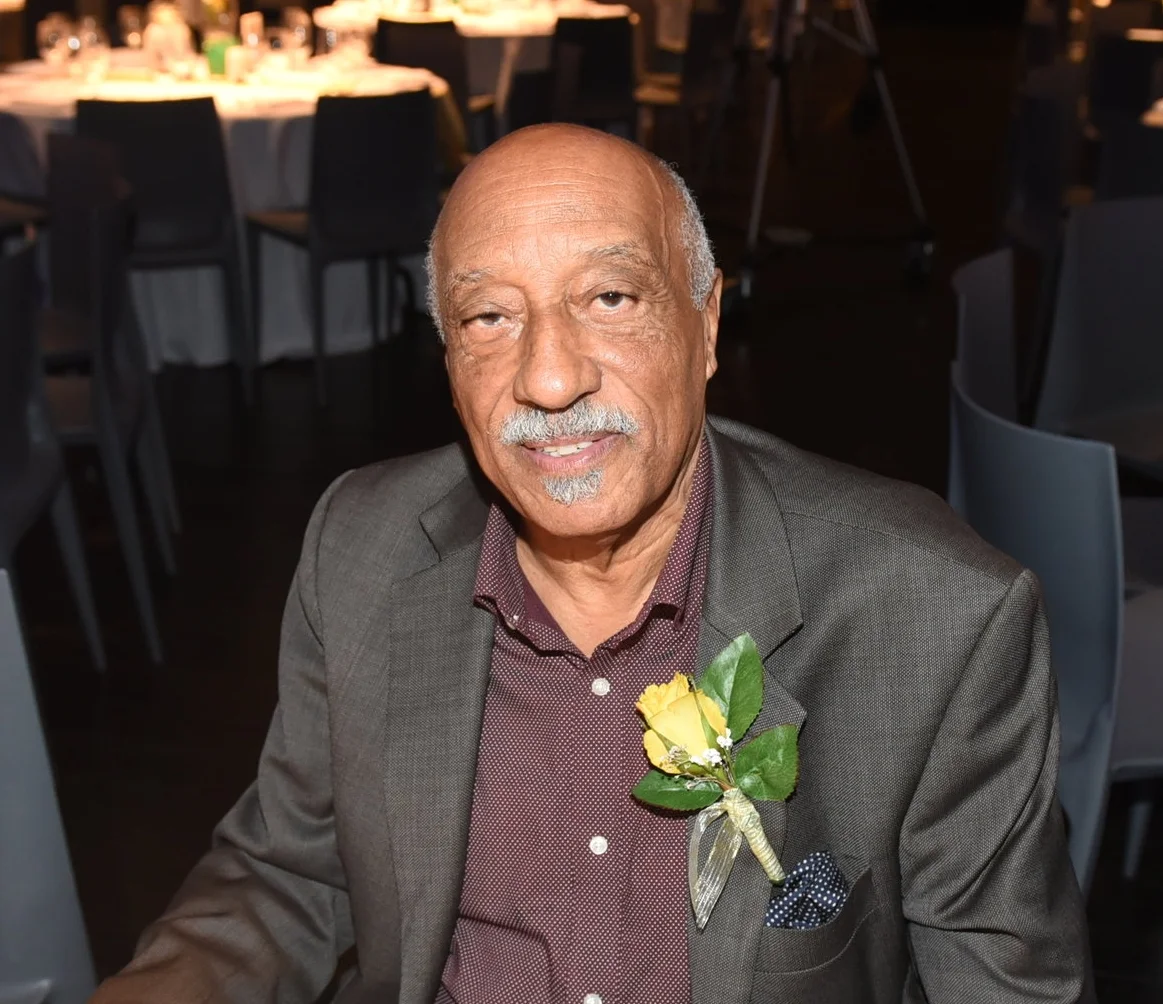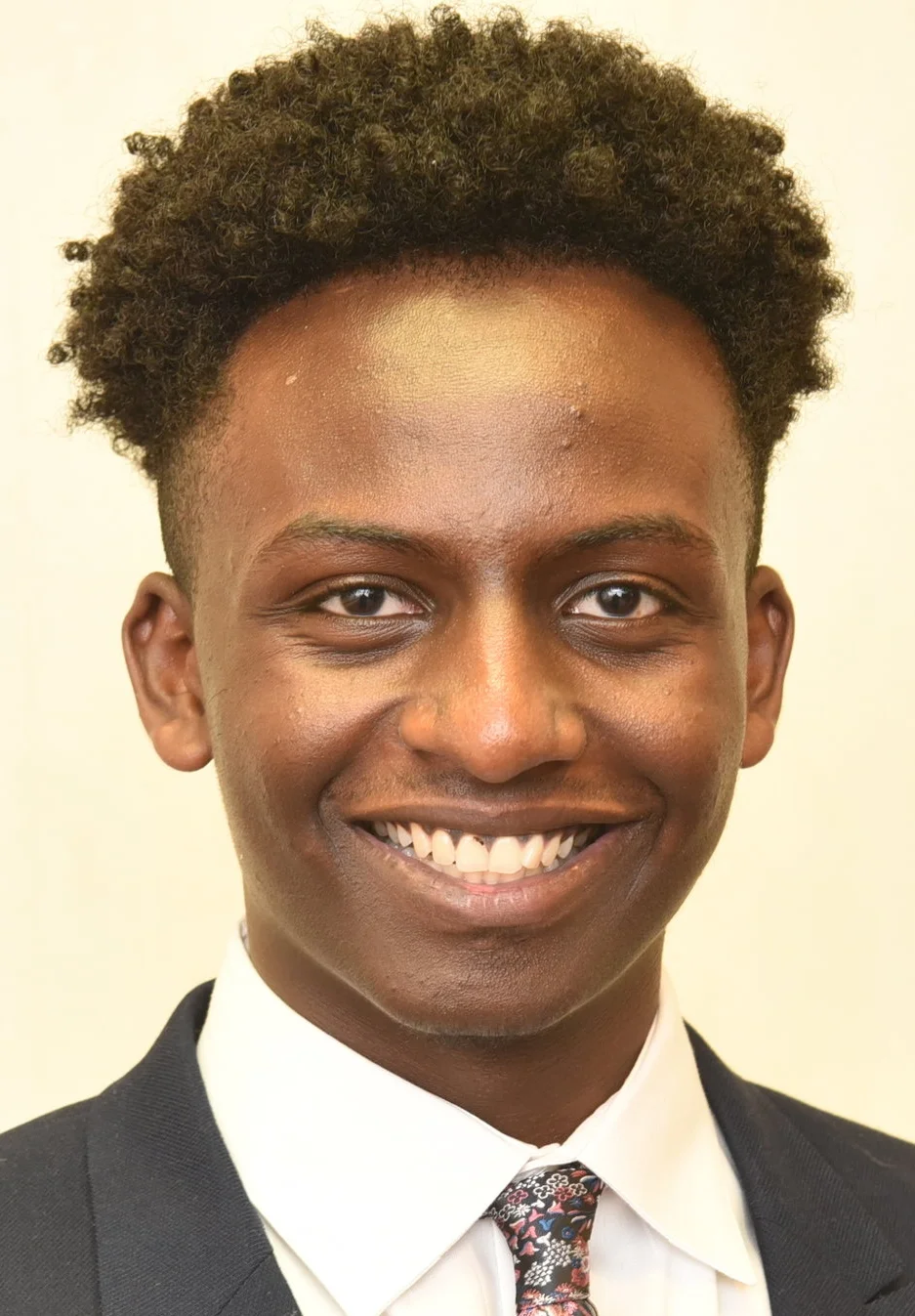Globally recognized atmospheric scientist Mengistu Wolde honoured at Bikila Awards
September 24, 2024
Curiosity is critical for developing scientific thinking.
Very aware of this fundamental human trait at a young age, it is not surprising that Mengistu Wolde gravitated to the sciences.
“I like to observe and ask questions,” he said. “By the time I got to university, my interest grew in applications and solving problems.”
Graduating with a Bachelor of Science in Physics from Addis Ababa University, Wolde was a Meteorologist in Ethiopia for eight years before going to the United States to pursue graduate studies.
At the University of Wyoming, Laramie airborne research facility, he fell in love with aircraft experimentation.
Wolde flew into storms, collecting data for his doctorate that focused on cloud structure and ice crystal growth in nimbostratus clouds.
In late 1999, he came to Canada to offer his unique skill set to the National Research Council (NRC) Aerospace Research Centre.
“I have family here and I heard many good things about this country,” Wolde said. “I also learnt the NRC was looking for someone with my knowledge.”
Over the last 24 years, he has led or co-led 15 major collaborative projects, spearheaded the development of world-class research facilities, including the NRC Airborne W and X-bands radar system, established the Airborne Facilities for Atmospheric Research and Reconnaissance research team and managed the Convair-580 that is an aircraft laboratory flying into storms to collect data.
The largest aircraft in the NRC fleet is equipped with full airborne in-situ cloud microphysics and remote sensing capability, making it an invaluable asset for atmospheric research in Canada.
Wolde is also the Scientific Research Lead for the new Medium-range Aircraft platform for Environmental Research (MAPLE) that will replace the Convair-580 which will be decommissioned in 2028.
“Working with the Convair since I joined the NRC in 2000 has been a real privilege, and now I'm looking forward to working with the new MAPLE aircraft which will be built with the federal renewal funding,” he pointed out. “The new plane will have a longer range so we can do more research in remote areas like in the North, and its capabilities will be developed with input from many stakeholders to make sure it's flexible and versatile enough to handle an even wider range of research needs.
“When MAPLE enters into service, it will be equipped to study climate change, air quality, cloud systems and severe weather, all of which will help prove out new solutions for green aviation, space-based observation and so much more."
On September 21, the eminent atmospheric scientist was honoured for Professional Excellence at the 10th annual Bikila Awards at The Carlu in Toronto.
The awards honour the memory of Abebe Bikila who was the first Black African to win an Olympic gold medal.
“To be honoured by your own is gratifying,” said Wolde who is a member of the National Aeronautics & Space Administration (NASA) Atmosphere Observing System (AOS) Suborbital Working Group. “To get an award in Bikila’s name is very special. Abebe was revered in Ethiopia when I was growing up. He inspired many people of my generation. I grew up idolizing him.”
He dedicated the award to his mother who single-handedly raised five children.
Forced to marry as a teenager to a husband twice her age, she died 11 years ago.
“I still get emotional when I talk about her,” Wolde noted. “My parents separated when I was young and she was left to take care of us. Very smart, she never complained about anything and approached everything she did with confidence. She was my role model. Mom never went to school, but she has a PhD in my book.”
Professional Excellence Awards were also presented to Tewodros Kassahun, Tirusew Asefa, Paul VanderVennen and Meseret Haileyesus.
After 20 months at Jhpiego – an international health non-profit organization affiliated with Johns Hopkins University -- leading the development, conceptualization and implementation of evidence-based Maternal Child Health & Nutrition and public health programs to inform decision-makers, Haileyesus arrived in Canada 12 years ago.
She spent three years in British Columbia and Alberta, working in the health sector and pursuing higher education before relocating to Ottawa.
Meseret Haileyesus (Photo by Ron Fanfair)
In 2017, Haileyesus founded the Canadian Centre for Women’s Empowerment which addresses economic abuse and economic injustice.
“More than just celebrating my accomplishments, this recognition highlights my resilience and persistence in fighting for economic justice,” said the Maternity Today founder and Canadian Institute for Research on Economic Justice member. “It is not easy to dismantle barriers that Black women and women of colour face. I know what those systemic barriers are because I face them.”
Growing up in Ethiopia which has been ravaged by war and drought, Haileyesus aspired to be a changemaker wherever she is.
“I just wanted to do things to make a difference in the lives of others,” she added. “In Canada, I am fighting for equality and equitable policies. I don’t believe we live in poverty as immigrants. Systems must be broken down and people have a right to access safe economies.”
Haileyesus has spoken to the Parliamentary Committee on various policy recommendations to advance women’s economic security, financial inclusion, the federal budget and legislative change and appeared at the Ontario Legislative Assembly, advocating for Bill 41 which protects human trafficking victims from coerced debt.
For nearly three decades, the bulk of VanderVennen clients have been of Ethiopian heritage.
“It began with a handful who did referrals and it just mushroomed from there,” said the 1985 Osgoode Hall Law School graduate who has extensive experience in representing clients in immigration law matters, including applicants for immigrant visas as refugee claimants in refugee determination hearings, appeals to the Refugee Appeal Division and Federal Court of Canada and sponsorship applications and appeals.
Paul VanderVennen (Photo by Ron Fanfair)
Starting his law firm primarily dedicated to Canadian immigration law practice shortly after being called to the Ontario Bar in 1987, VanderVennen has worked exclusively in immigration law since 1995.
He and his family visited Ethiopia in 2007.
Kassahun, also known as Teddy Afro, is a renowned singer/songwriter, and Asefa chairs the Florida Water & Climate Alliance.
Retired Canadian civil servant Ambaye Kidane, who founded the People to People Aid Organization that raised substantial funds to assist vulnerable children in Ethiopia, and entrepreneur Henok Tesfaye were the recipients of Community Service and Business Excellence Awards respectively.
To help pay his living and university expenses, Tesfaye was a part-time parking lot attendant in downtown Washington, DC.
By age 24, he had saved enough money to rent a lot in a challenging urban neighbourhood.
Eight years after migrating to the United States, Tesfaye and his brother – Yared Tesfaye -- started U Street Parking (USP) in 1998 which is now one of the largest minority-owned parking businesses in America with over 200 locations.
Nearly 80 percent of the staff are of Ethiopian heritage.
Parking Services are part of USP Holdings which provides several other services, including janitorial at the two major airports in Metropolitan DC, shuttle bus, limousine, security and curbside management at New York and New Jersey major airports.
Henok Tesfaye (Photo by Ron Fanfair)
In addition, Tesfaye and his brother co-founded DC General Construction and the Potomac Managing Group which manages over 500 units in the Washington DC area.
Globally recognized, the thriving business leader does not take success lightly.
“I went to the United States with nothing and followed my dreams,” said Tesfaye who is a partner and co-founder of United Investments whose real estate projects include a $564 million, 1.2 million square feet mixed-use development in Hill East that sits between Capitol Hill and the Anacostia River. “It took 26 years to get to where I am. I worked hard and smart without using shortcuts. If I can do it, most young people can do the same.”
Le’ul Ras Mengesha Seyoum, a former Ethiopian government minister who lived in exile for 17 years until 1991, was recognized with a Lifetime Achievement Award. Ethiopia’s last surviving Ras was unable to make the trip to Toronto because of health challenges. He is 97.
Hakim Workneh Eshete was posthumously honoured with the Order of the Shining Star of Ethiopia Medal.
Ethiopia’s first medical doctor served as Burma’s Medical Officer and his country’s ambassador to the United Kingdom.
In the confusion after the Battle of Magdala in 1868, Eshete was captured by Anglo-Indian troops and taken to India as they thought he was an orphan.
His wealthy family was, however, imprisoned during the battle.
Passed on to Colonel Charles Martin whose name he adopted, the trailblazer died in 1952.
Nuhamin ‘Nunu’ Mequanint, Rebecca Girma and Yetbarek Asrat were recognized for Academic Excellence.
Enrolled in the dual degree Business & Law Program at Western University’s Ivey Business School, Mequanint interned this summer at Borden Ladner Gervais.
The Dean Honours List student leads the Ivey Community Engagement Club curriculum development and is the President of Beyond the Books and ACE Western.
Completing high school at St. Joan of Arc Catholic Secondary School in Mississauga, Girma is pursuing Mechanical Engineering Studies at the University of Toronto.
The former Study Circle program Math Tutor is the Chief Operating Officer of Alumnex which is a St. Joan of Arc graduates social networking platform.
On the Dean Honours List in 2023-24 at Toronto Metropolitan University (TMU) Ted Rogers School of Management, Asrat aspires to make a mark in Canada’s financial sector.
Yetbarek Asrat (Photo by Ron Fanfair)
“I have a lot of ideas about what I want to do,” said the second-year Business Management Studies student who was born and raised in the Greater Toronto Area. “The end goal is to own my business.”
Asrat teaches Ge’ez to young people and is a Deacon at Debre Genet St. Teklehaymanot Orthodox Church.
Ge’ez is an ancient language used primarily for liturgical Christian services.
Yohannes Alonzo was honoured for Community Service.
“I was shocked when I was notified about this recognition because I never expected something like this,” said the Calgary-based WestJet Aircraft Maintenance Engineer apprentice who is an ordained member of the Ethiopian Orthodox Tewahedo Church. “However, it is a good feeling to be recognized by a community that embraces you.”
Yohannes Alonzo (Photo by Ron Fanfair)
Alonzo is proficient in traditional Ethiopian instruments, including the kebero, krar and masenqo.
Special Recognition awards were presented to the Toronto Addis Ababa Academic Collaboration (TAAAC), Jesuits of Canada and the U of T Faculty of Arts with whom the Bikila Awards committee has a longstanding and fruitful relationship.
At the second annual Bikila Awards in 2015, Michael Gervers -- who teaches an Ethiopian cultural history course at the U of T Scarborough campus – pledged $50,000 to promote the study of the Ge’ez language.
The university matched the donation, the Ethiopian community in Canada raised $20,000 at a community forum a few months later and Toronto-raised rhythm & blues artist and high school dropout, Abel Tesfaye, also known as ‘The Weeknd’ – the son of Ethiopian immigrants – made a $50,000 donation.
With a $500,000 endowment that included a further $30,000 from ‘The Weeknd’, the university launched an Ethiopic program in 2020, the first of its kind in North America.
Three years earlier, the university offered an introductory Ge’ez course.
U of T is the only university in North America and one of the very few in the world that regularly offers a course on Ge’ez. It’s part of the Semitic group of languages, including Hebrew, Arabic and Aramaic and remains a fundamental language for classical studies such as Latin and Greek.
The Faculty of Arts & Science’s Department of Near and Middle Eastern Civilizations and the Centre for Medieval Studies jointly run the program.
Professor Michael Gervers (Photo by Ron Fanfair)
“Now, we are teaching introductory and intermediary courses,” said Gervers who is working with U of T Librarian Paulina Rousseau on a project that will make the entire manuscript collection of the 15th-century Ethiopian monastery at Gunda Gunde (Tigray Province) available on line. “The Ethiopian community is well ensconced in the university right now, and we are hoping to go further. The expectation is for us to get a professorship, but that is much more expensive and could cost nearly $5 million. Once you have it, it is there forever. The university is very open to supporting communities and the Ethiopian community is very strong.”
The trained Medievalist has made about 25 visits to Ethiopia, the first in 1982.
“For someone like me, life in Ethiopia is quite recognizable,” said Gervers who has been teaching History & Art History at U of T since 1976. “The predominance of the presence of the church is somewhat similar to what it is like in Europe. There is also a rich material culture that I have been documenting for many years. I have gone to monasteries and churches and photographed church paraphernalia. That goes into a database for anyone to consult. That makes Ethiopia more accessible.”
Ethiopia’s relationship with the Jesuits of Canada goes back to 1945 when Emperor Haile Selassie sought their expertise to modernize the country’s educational system after World War II. They restructured Teferi Mekonnen School – founded in 1925 and a heritage site -- the following year, introduced a secondary curriculum and founded the University College of Addis Ababa in 1950.
“Recently, we had an exhibit about the Jesuit’s historical documents and the Ethiopian community came out,” said Dr. Gordon Rixon, the President of Regis College and a literary trustee for Canadian Jesuit philosopher & theologian Bernard Lonergan. “We were so pleased to renew our relationship with that community.”
Since 1995, Regis College has received students from 63 countries, including Africa.
The keynote speaker at the Bikila Awards, Rixon took Kenyans Bernard Adika and Remy Niyiteka and Ugandan Robert Sekyanzi to the event.
Sekyanzi is pursuing a PhD. and Adika and Niyiteka are preparing for ordination as Jesuit priests.
Regis College President Gordon Rixon with Kenyans Bernard Adika (l) & Remy Niyiteka (r) who are on the verge of being ordained Jesuit Priests and PhD student Robert Sekyanzi (Photo by Ron Fanfair)
Running barefoot at the 1960 Rome Olympics which was his first competitive race outside Ethiopia, Bikila won the marathon in a record time of 2:15:16.2.
Successfully defending his title four years later in Tokyo running with shoes, he was denied the hat-trick at the 1968 Mexico City Games when a right knee injury forced him to quit after 17 kilometres. His countryman, Mamo Wolde, won the gold medal.
Bikila died in October 1973 of a brain hemorrhage, a complication from a single-vehicle accident four years ago that left him paralyzed.
The Bikila Awards Board of Directors comprises Tessema Mulugeta, Birku Menkir, Dr. Haregua Getu and Behailu Atnafu.
In 2018, they -- along with the organization’s co-founder Tamrat Gebeyehu who died six years ago -- were honoured with Arbor Awards that recognize U of T volunteers.













